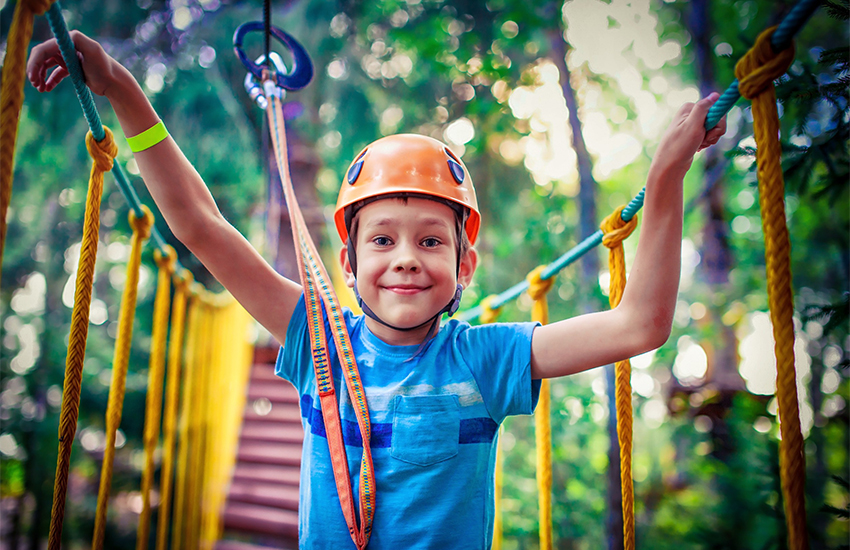
Summer is right around the corner! And if you haven’t decided where your child is going to camp this season, there’s no time to waste! Now, when it comes to selecting the right camp experience for your child, you’ll likely encounter two options: day camp vs. residential camp. Each camp type offers unique advantages and disadvantages that can have a significant impact on your child’s experience.
Day Camp vs. Residential Camp: Exploring the Differences
Day Camp
Day Camp can somewhat be compared to a daycare. It allows your child to have a structured and engaging experience during the day. Then, return home to a familiar environment every evening. Here are some of the most important factors to consider:
Schedule: Day camps typically operate during regular business hours. This is convenient for working parents that may choose to drop off and pick up their campers before and after work.
Location: Some summer camps can be remote. But, day camps tend to be located in more urban areas. They may even be situated in local parks, community centers, or other facilities.
Flexibility: There is far more flexibility with day camp vs. residential camp in regard to attendance. Residential camps may last weeks at a time. But with day camps, parents can simply enroll their child for a single day, a few days, or for the entire duration of the camp.
Activities: Just like residential camps, day camps often provide a wide variety of activities tailored to different ages and abilities. Some of these activities may include sports, arts and crafts, team-building exercises, and more. If your child is interested in a specific activity or sport, research sport-specific day camps in your area, too.
Comfort: Some kids may not be ready to spend several nights away from home. If this sounds like your child, day camp is an excellent option. Your kids can have a blast during the day, but return home in the evening to sleep in their own beds.
Residential Camp
On the other hand, residential camps offer more of a full immersion experience. In most cases, children will live on-site at the camp for a designated period of time. This typically ranges anywhere from a week to several months. Here are some of the most important factors to consider:
Experience: Since there’s no back and forth between camp and home at residential camps, they offer your child an extended length of time to enjoy all camp has to offer. This results in more developed relationships with friends, profound personal growth, and more experience with sports and other activities.
Independence: Living away from home for the first time can be daunting for kids. But, it has so many benefits if you think your child is ready. Residential camps can promote independence, self-reliance, and the development of essential life skills.
Responsibility: In addition to gaining independence, children must also learn responsibility. They will have to take care of themselves and their personal hygiene, manage their clothing and other belongings, and navigate a new community.
How Do You Decide?
There are several topics to take into account when choosing which camp option, day camp vs. residential camp, is best for your child. Here are some of the most important factors to consider:
Readiness: You know your child better than anyone, so you will be the best person to asses your child’s readiness and level of independence. Will they be comfortable being away from home? How well do they adapt to new environments?
Interests: If your child has their eyes set on a specific activity or skill, a residential camp with a dedicated program will give them a more immersive experience. If your child is not quite sure of a specific direction or area of interest, a day camp may offer a wider range of activities.
Age: The older your child is, the more ready they may be for the independence offered by residential camps. Younger children, however, would likely benefit more from the structure and familiarity of home that day camp provides.
Communication: Your child will be the one actually going to camp, so consider asking for their input! Involving them in the decision-making process will also give you a chance to address any concerns or questions they might have.
By considering these important factors, you can make an informed decision and select a camp that best suits your child’s needs. No matter your ultimate choice, day camp vs. residential camp, the summer experiences awaiting your child will all be fulfilling.